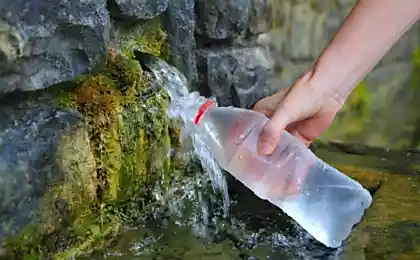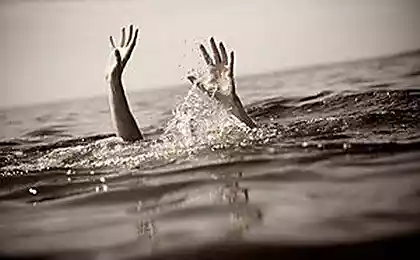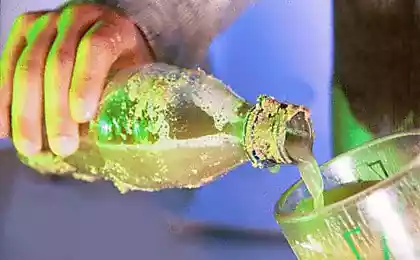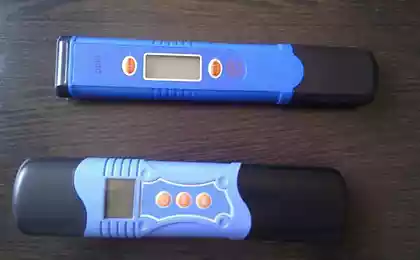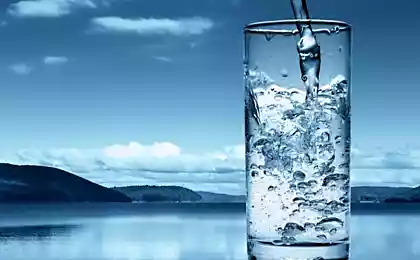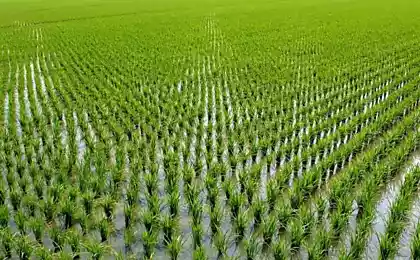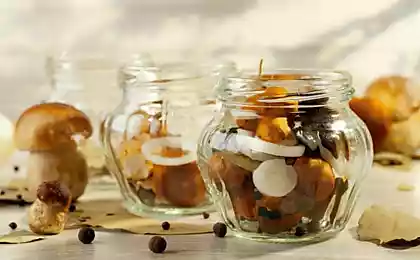662
Facts about water
Water - the most simple and familiar substance on the planet. But at the same time, the water carries a lot of mysteries. She still continue to investigate the scientists are finding more interesting data about water.
The purest water is in Finland
According to UNESCO, the purest water is in Finland. A total of fresh natural water 122 countries participated. This 1 billion people worldwide do not have access to safe water.
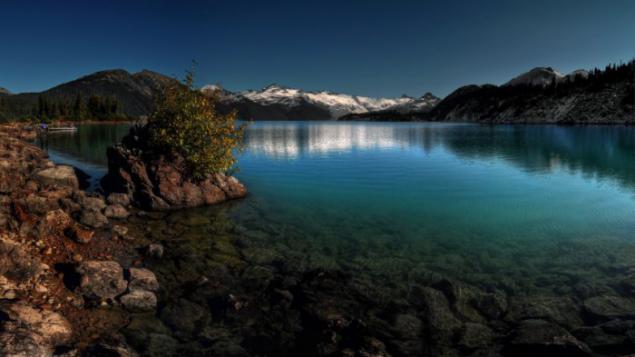
At the water more than 3 states
From school everyone knows that water has a 3: liquid, solid and gaseous. However, scholars have identified 5 different states of water in liquid form, and 14 states in the frozen form.
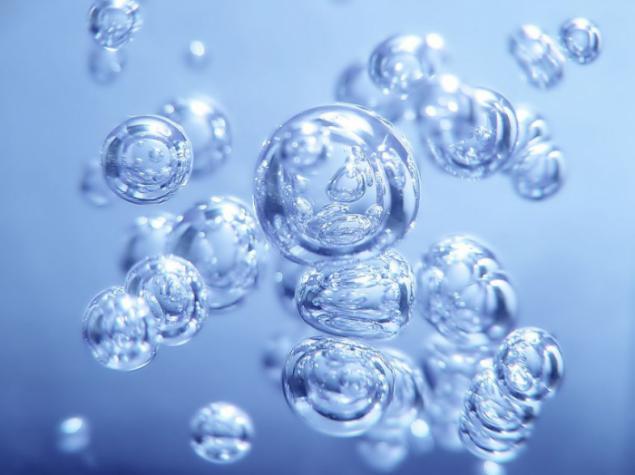
The water like glass
What happens if you take the frozen pure water and continue cooling? With water there will be miraculous transformations. At minus 120 degrees Celsius water is extra-viscous or viscous, and at a temperature below minus 135 degrees it becomes a "glass" water. "Glass" water - a solid, which lacks crystalline structure, both in the glass.
Water - a carrier of disease
Water not only gives life, but it can also take it away. 85% of all diseases in the world transmitted through water. Every year, 25 million. People die from these diseases.
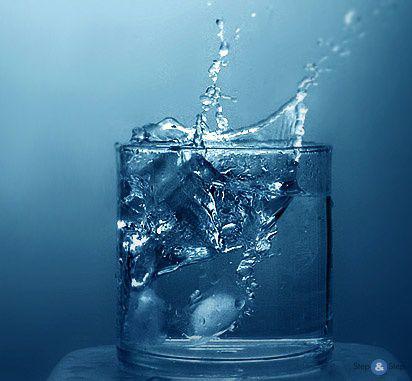
Water is life
If a person loses 2% water by weight of his body, then he has a strong thirst. If the percentage of lost water increase to 10, then the person will start hallucinating. If you lose 12% of people will not be able to recover without the help of a doctor. If you lose 20% the person dies.
Water - the basis of life. Every living animal and vegetable substance composed of water: animals - 75%, fish - by 75%, jellyfish - by 99%, potatoes - by 76%, apples - 85%, tomatoes - 90%, cucumbers - 95 %, watermelons - 96%. Even a person is out of the water. 86% of the water contained in the body of a newborn and up to 50% in the elderly.
The largest reserves of fresh water - in glaciers
Where are the most water? The answer seems obvious: in the oceans. But in fact, in the mantle of water contains 10-12 times more than in the oceans. Moreover, almost all available in the world body of water not suitable for drinking. We can drink only 3% of the water - that is how much we freshwater. Even most of the 3% is not available, as is contained in glaciers.
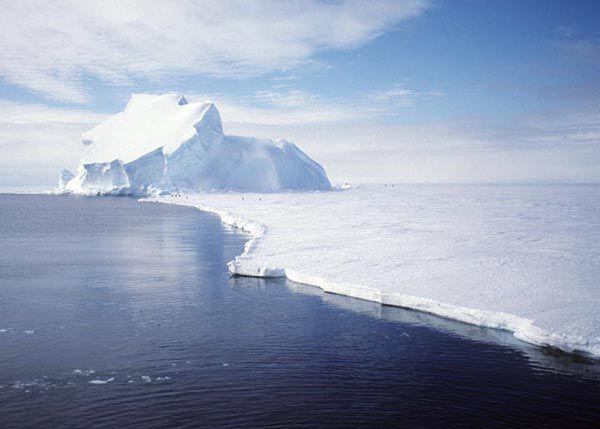
Water as diet
With water you can fight obesity. Eating out drink only water, you can dramatically reduce the total caloric intake. Firstly, because the person stops drinking high-calorie sweet drinks and juices, and secondly, because after less water pulls take sweets, as is the case with tea or coffee.
Water for a Healthy Heart
Water helps reduce the chance of a heart attack. During the study, researchers found that those who drink about six glasses of water a day, lower risk of heart attack as opposed to those who drink only two cups.
Ice will get out of hot water
Which water quickly turned to ice: hot or cold? Logically, then, of course, cold. It must first be hot to cool, and then freeze, but the cold does not need to cool down. However, experience shows that the ice is fast becoming the hot water.
The exact answer to the question, why did the hot water freezes faster than cold, still does not exist. Maybe it's the difference in the supercooling, evaporation, ice formation, convection, or the reason for the impact of diluted gases at the hot and cold water.
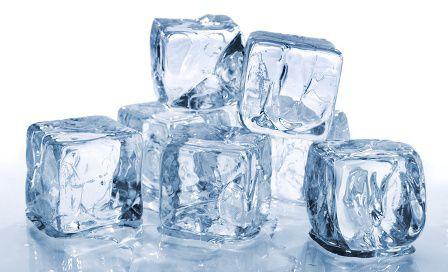
The water that burns
There is a dangerous water. For example, in Azerbaijan there is water in which a lot of methane, so it can catch fire if exposed to a match. And in Sicily in one of lakes has underwater acid sources which poison all the water in this reservoir.
The purest water is in Finland
According to UNESCO, the purest water is in Finland. A total of fresh natural water 122 countries participated. This 1 billion people worldwide do not have access to safe water.

At the water more than 3 states
From school everyone knows that water has a 3: liquid, solid and gaseous. However, scholars have identified 5 different states of water in liquid form, and 14 states in the frozen form.

The water like glass
What happens if you take the frozen pure water and continue cooling? With water there will be miraculous transformations. At minus 120 degrees Celsius water is extra-viscous or viscous, and at a temperature below minus 135 degrees it becomes a "glass" water. "Glass" water - a solid, which lacks crystalline structure, both in the glass.
Water - a carrier of disease
Water not only gives life, but it can also take it away. 85% of all diseases in the world transmitted through water. Every year, 25 million. People die from these diseases.

Water is life
If a person loses 2% water by weight of his body, then he has a strong thirst. If the percentage of lost water increase to 10, then the person will start hallucinating. If you lose 12% of people will not be able to recover without the help of a doctor. If you lose 20% the person dies.
Water - the basis of life. Every living animal and vegetable substance composed of water: animals - 75%, fish - by 75%, jellyfish - by 99%, potatoes - by 76%, apples - 85%, tomatoes - 90%, cucumbers - 95 %, watermelons - 96%. Even a person is out of the water. 86% of the water contained in the body of a newborn and up to 50% in the elderly.
The largest reserves of fresh water - in glaciers
Where are the most water? The answer seems obvious: in the oceans. But in fact, in the mantle of water contains 10-12 times more than in the oceans. Moreover, almost all available in the world body of water not suitable for drinking. We can drink only 3% of the water - that is how much we freshwater. Even most of the 3% is not available, as is contained in glaciers.

Water as diet
With water you can fight obesity. Eating out drink only water, you can dramatically reduce the total caloric intake. Firstly, because the person stops drinking high-calorie sweet drinks and juices, and secondly, because after less water pulls take sweets, as is the case with tea or coffee.
Water for a Healthy Heart
Water helps reduce the chance of a heart attack. During the study, researchers found that those who drink about six glasses of water a day, lower risk of heart attack as opposed to those who drink only two cups.
Ice will get out of hot water
Which water quickly turned to ice: hot or cold? Logically, then, of course, cold. It must first be hot to cool, and then freeze, but the cold does not need to cool down. However, experience shows that the ice is fast becoming the hot water.
The exact answer to the question, why did the hot water freezes faster than cold, still does not exist. Maybe it's the difference in the supercooling, evaporation, ice formation, convection, or the reason for the impact of diluted gases at the hot and cold water.

The water that burns
There is a dangerous water. For example, in Azerbaijan there is water in which a lot of methane, so it can catch fire if exposed to a match. And in Sicily in one of lakes has underwater acid sources which poison all the water in this reservoir.


